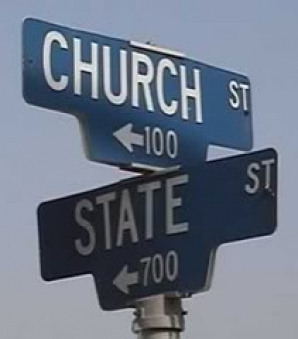 Total charitable contributions by individuals, foundations, bequests, and corporations reached $298.42 billion in 2011, with religious organizations receiving the largest share ÔÇô thirty-two percent ÔÇô of total estimated contributions. Holding religious organizations to the same filing standards as other charitable and educational institutions ensures that the almost $100 billion being donated to religious organizations is actually going to help those who need it.
Total charitable contributions by individuals, foundations, bequests, and corporations reached $298.42 billion in 2011, with religious organizations receiving the largest share ÔÇô thirty-two percent ÔÇô of total estimated contributions. Holding religious organizations to the same filing standards as other charitable and educational institutions ensures that the almost $100 billion being donated to religious organizations is actually going to help those who need it.
Yet churches are currently automatically tax-exempt and entitled to the benefits of 501(c)(3) status without applying for advance recognition from the IRS. All other organizations must fill out the 31-page Form 1023 to apply to receive recognition. Once the IRS grants a secular organization tax-exempt status pursuant to §501(c)(3), the organization must file a Form 990 annual return with the IRS. The IRS uses the information provided in the Form 990 to ensure that an organization granted tax-exempt status remains so qualified. But churches and their integrated auxiliaries areexempt from filing 990 returns.
Churches also receive practical immunity from IRS auditing based on procedures set forth in the Church Audit Procedures Act. CAPA requires that before the IRS may begin an inquiry into the tax status of any organization claiming to be a church, the IRS must satisfy certain prerequisites, including articulating a reasonable belief in the need for an investigation, providing special notice to the church, and having a high-level Treasury officialconduct the inquiry.
The Catholic Church and entities owned by the Church spent approximately $170 billion in 2010. Included in this amount is a percentage of the $3.3 billion spent on settlements over the past 15 years of cases where priests have been accused of child-molestation and rape.  And in July 2012 the former chief financial officer of the archdiocese of Philadelphia was convicted for embezzling more than $900,000 between 2005 and 2011.
The Church of Jesus Christ of Latter-day Saints donated $1.4 billion between 1985 and 2011, ┬ábut that figure only accounts for .9% of the LDS ChurchÔÇÖs annual revenue during that time, estimated around $156 billion. In comparison, the American Red Cross spends 92.1% of its revenue directly addressing the needs of those it intends to help. Although its annual revenue is approximately half of the LDS Church, the American Red Cross spent twice as much money on charity in one year than the LDS Church did in 26 years. Not only is the LDS Church not subject to the same regulations as other billion-dollar corporations, but the Church is also exempted from non-profits regulation and enforcement as a religious organization.
The combination of §508(c)(1)(A), §6033(a)(3)(A)(i), and §7611 ensures that churches receive substantial tax benefits while remaining insulated from public or government review. When select organizations are shielded from any investigation, it is impossible to know whether these organizations are using their funds for benevolent action. Religious privileges nonessential for accommodating free exercise should be removed from the tax code, including the initial 501(c)(3) application exemption for churches, the annual Form 990 filing exemption for churches, and the restrictions on IRS investigations of churches known as the Church Audit Procedures Act (CAPA). Closing the three tax loopholes would not only establish necessary accountability, it would also create significant revenue for the federal government. If only a quarter of the $100 billion donated to religious organizations per year were ineligible for deduction, that money could be subject to a gift tax of up to 35%, or as much as $8.75 billion in revenue. Property tax revenues regained from previously exempt churches that violate 501(c)(3) rules could be considerable. Revenues lost to the non-profit property tax exemption in 2009 were an estimated $17-$32 billion nationally.
POLICY RECOMMENDATION: A simpler and fairer tax code can be achieved by removing the following three provisions:
- §508(c)(1)(A) which awards churches 501(c)(3) status without application;
- §6033(a)(3)(A)(i), which removes the requirement to file annual IRS reports; and
- §7611, which shields churches from IRS investigation.

